The Civil War marked one of the most dramatic state changes in how Black people practiced their faith. Those born or living free in the North had long had the option to choose which church to join. But, prior to emancipation, going to formal church service in the South usually meant attending the Baptist church of your enslaver.
After the war, freed people claimed the right to free worship in churches they could establish for themselves, with thousands of local congregations of different ideologies springing up all over the South. Soul liberty would act as a springboard for religious community among African Americans, and would embolden them to push for concrete social and political change during Reconstruction.
View Transcript
Kidada Williams: Previously on Seizing Freedom…
Mattie J. Jackson: My mother used to sit up nights and read to keep posted about the war…
John Sella Martin: When Eaton left me with the ABC ringing in my memory, I saw myself already writing a free-pass, and with it traveling to find my mother and sister…
Susie King Taylor: We wrapped our books in paper to prevent the police or white persons from seeing them.
Ella Sheppard: We made rapid progress, and soon began to help our school by going Fridays and Saturdays to neighboring towns to give concerts.
Robert Hamilton: The educational system must be constructed or organized upon our basis—the equality of the race.
KW: Today’s story starts back in 1831. Rumor and alarm were swirling. Nat Turner, leading a rebellion, had just gone house to house in Southampton County, Virginia, freeing the enslaved and killing enslavers.
Harriet Jacobs: And the news threw our town into great commotion. Strange that they should be alarmed, when their slaves were so “contented and happy”! But so it was.
KW: This is Harriet Jacobs. At the time, she was about twenty years old and enslaved in North Carolina—some 70 miles south of Turner’s rebellion. From her grandmother’s house, she watched as local white people lost their damn minds from fear, and groundless suspicion—invading Black people’s homes in mobs, looking for evidence of rebellion.
HJ: All day long these unfeeling wretches went round, like a troop of demons, terrifying and tormenting the helpless. In some cases the searchers scattered powder and shot among their clothes, and then sent other parties to find them, and bring them forward as proof that they were plotting insurrection.
KW: Nat Turner was a radical preacher. He used the Bible to condemn slavery and believed passionately, that he was called by God to lead his people to freedom. He was preceded by Denmark Vesey, an AME minister, whose planned 1822 rebellion against slavery in Charleston, saw him and 66 others executed and caused that church to be banned in the South.
The consequence of these two uprisings was massive distrust of Black congregations and independent religious worship among whites.
HJ: They had found a few parcels of shot in a respectable old colored minister’s house, which his wife had for years used to balance her scales. For this they were going to shoot him on Court House Green. What a spectacle was that for a civilized country! A rabble, staggering under intoxication, assuming to be the administrators of justice!
KW: A night guard was added to the day patrol. Almost two months later, Nat Turner was captured, and executed. No whisper of rebellion in Harriet Jacobs’ county was ever proven, but the slaveholders’ wrath was “somewhat appeased.”
Prisoners were released, but visiting from plantation to plantation was strictly forbidden. Requests from enslaved people to again gather in their places of worship, like the little graveside church in Harriet Jacobs’ community, were denied, and the structures demolished.
HJ: The slaveholders came to the conclusion that it would be well to give the slaves only enough of religious instruction to keep them from murdering their masters. They were permitted to attend the white churches, a certain portion of the galleries being appropriated to their use.
KW: What happened in Harriet Jacobs’ community happened elsewhere for decades leading up to the Civil War. To keep Black people from having independent interpretations of Christianity, and using scripture to condemn enslavement and demand freedom, churches were burned, reading was barred, and Black peoples’ religious liberty was kept under strict white supervision.
But people like Harriet Jacobs, who suffered their cruelty first hand, were acutely aware of the ironic hypocrisy of “Christian slaveholders.”
HJ: A clergyman who goes to the south, for the first time, has usually some feeling, however vague, that slavery is wrong. The slaveholder suspects this, and plays his game accordingly. He makes himself as agreeable as possible; talks on theology, and other kindred topics. The reverend gentleman is asked to walk round the premises, and sees the beautiful groves and flowering vines, and the comfortable huts of favored household slaves.
This is sufficient to satisfy him. He comes home and he assures people that he has seen slavery for himself; that it is a beautiful “patriarchal institution”; that the slaves don’t want their freedom; that they have hallelujah meetings, and other religious privileges. What does he know of the half-starved wretches toiling from dawn till dark on the plantations? of mothers shrieking for their children, torn from their arms by slave traders?
I well remember one occasion when I attended a Methodist meeting. I went with a burdened spirit, and happened to sit next to a poor, bereaved mother, whose heart was still heavier than mine. The meeting leader—the town constable—who bought and sold slaves, and whipped his brethren and sisters of the church at the public post, came near us, and said to the stricken woman, “Sister, can’t you tell us how the Lord deals with your soul?
She rose to her feet, and said, in piteous tones, “My Lord and Master, help me! My load is more than I can bear…They’ve got all my children. Last week they took the last one….O! O! Pray for her brothers and sisters!.. God make my time short!”
KW: The woman sat down, quivering. And Harriet looked on as the constable’s face grew beet red—not with rage or embarrassment, but with suppressed laughter.
HJ: He held up his handkerchief, that those who were weeping for the poor woman’s calamity might not see his merriment. The congregation struck up a hymn, and sung as though they were as free as the birds that warbled round us:
Cry Amen, cry Amen, cry Amen to God! / Ole Satan’s church is here below / Up to God’s free church I hope to go / Cry Amen, cry Amen, cry Amen to God!
Precious are such moments. If you were to hear them at such times….
These people send the Bible to heathen abroad, and neglect the heathen at home. It is sinful. And they are answerable to God for sealing up the Fountain of Life from souls that are thirsting for it.
KW: I’m Dr. Kidada Williams. This is Seizing Freedom. Today, we’ll learn how a thirst for soul liberty, and the freedom to worship as they saw fit, sustained Black Americans through centuries of enslavement.
And how the sustenance they found in religious community stoked their hunger for more than the “Fruits of the Spirit,” and emboldened them to fight for—and demand—concrete social and political change.
Harriet Jacobs wrote: “There’s a big difference between ‘Christianity’ and ‘religion’ in the South.” Religion was the stuff of institutions—of the slavocracy. Interpreting faith for herself sustained Harriet. In 1835, four years after Nat Turner’s rebellion, she tried to escape. But, unable to bear leaving her young children behind, Harriet spent the next seven years hiding instead, in a crawl space in her grandmother’s attic. She couldn’t stand up, but cut small holes in the roof to watch her children, and for light to read the Bible by.
HJ: There are thousands, who are thirsting for the water of life; but the law forbids it, and the churches withhold it.
KW: For centuries, people like Harriet Jacobs found ways to quench their thirst for “the water of life,” to make sense of the world and their enslavement in spite of the law and the whim of white churches.
Black people held and kept their spiritual practices from the beginning. African captives didn’t come to this country as religious blank slates. They arrived with a range of religious beliefs and practices, including Islam, polytheism, and conjure. But preserving West and Central African religious life in North American slavery was difficult. Many kept as much of their religious and spiritual life as possible, eventually blending it with Christianity.
Rachel Anderson: My great-gran—her name was Peggy—I remember she prayed every day, at sunrise, at noon, and at sunset. She kneeled down when she prayed and at the end she bowed low three times, facing the sun.
Patsy Moses: The old voodoo doctors was the one had the most power, it seem, over negros befo’ and after the war. One man conjured himself by takin’ a good, soapy bath so the dogs couldn’t smell him and then said a hoodoo over his rabbit foot:
“O, Molly Cottontail / Be sho’ not to fail / Give me you right hind foot / My luck won’t be for sale.”
He got to the creek and git a start by wadin’. They didn’t miss him till he was clear gone and that’s sho what the rabbit foot did for him.
Fannie Moore: They never let us have any church. But we’d slip off an’ pray an’ hold prayer-meetin’ in de woods then tu’n down a big wash pot and prop it up with a stick to drown out the soun’ of the singin’:
“Hark from the tomb a doleful soun’ / My ears hear a tender cry / A livin’ man come through the groun’ / Where we may shortly lie.”
Wash Wilson: When they went round singin’ “Steal Away to Jesus,” that meant there was going to be a religious meetin’ that night.
James Southall: They would take cooking pots and put ‘em over their mouths so the white folks couldn’t hear ’em. They’d dig holes in the ground too, and lie down when dey prayed.
“Here in this clay may be your bed / In spite of all your toil / Let all de wise bow revrant head / Mus’ lie as low as ours.”
KW: Enslaved people’s faith practices and their visions of collective belief—of what we call “Church”—shifted and evolved during enslavement. Black churches were both safe havens and melting pots…places where the traditions of the past and the theologies of the present could be synthesized, adapted, and reclaimed.
The Civil War marked one of the most dramatic state changes in how Black people practiced their faith. Those born or living free in the North had long had the option to choose which church to join. Certain denominations, like the African Methodist Episcopal Church—the AME—had deep roots in Northern Black communities. And it’s where many future missionaries like Amanda Berry Smith came of age.
Amanda Berry Smith: I joined the Church…I well remember the name of my class leader: Joshua Ludrick. I liked him for his lung power, for I thought then there was a good deal of religion in loud prayers and shouts. You could hear him pray half a mile when he would get properly stirred.
KW: But in the South, the AME—because it was associated with rebellion—was banned until 1861. So going to formal church service usually meant attending the Baptist church of your enslaver.
Sarah Douglas: We went to the white folks’ church, so we sat in the back on the floor…Whenever we got ready to join…We told our determination…said: “I feel that the Lord has forgiven me for my sins.” The white preacher would then ask our miss and master what they thought about it and if they could see any change. They would get up and say: “I notice she don’t steal and I notice she don’t lie as much and I notice she works better.” Then they’d let us join. We served our mistress and master in slavery time and not God.
George Kye: We would tie our shoes on our backs and go down the road close to the white church and all set down, put our shoes on, and go up close and listen to the service. Old master was baptized almost every Sunday and cussed us all out on Monday morning.
KW: Sometimes, Black people were allowed their own small, separate churches—but these were usually led by white ministers.
Emma Tidwell: Black preachers couldn’t preach to us. The white preacher would call us under a tree Sunday evenin’. His text would be: “Mind yo mistress.” Then he would proceed to preach: “Don’t lie bout nothin an don’t talk back to yo boss;…When they tell you to do somethin run an do it.” That’s the kind of gospel we got.
KW: Others gathered in public spaces, outside but still under the watchful eye of a white overseer who could monitor the community for potential signs of rebellion.
Leah Garrett: They always had somebody to follow the slaves to church when the colored preacher was preachin’ to hear what was said and done. They was afraid we would try to say something against ’em. They didn’t allow us to sing such songs as “We Shall Be Free” and “O For a Thousand Tongues to Sing.”
KW: Others practiced in what we now call the “Invisible Church.” They read the Bible, in secret, to themselves and to others. They held small, clandestine services to guide souls through slavery and the joys and pains of life. This “church” helped believers remember that “trouble don’t last always,” that Judgment day would come and, one day, they would be free.
William Moore: Marse Tom didn’t mind us singin’ in our cabins at night, but we better not let him catch us prayin’. But we’d take turns watchin’ to see if Marse Tom was anywhere about. Then we’d circle ourselves on the floor in the cabin and pray. Some folks would git to moanin’ low and gentle:
“Some day, some day, some day, this yoke gone be lifted off our shoulders.”
KW: Regardless of what their enslavers wanted, Black people continued to pray for freedom. They didn’t just pray, though—they acted. And many saw the Civil War, and the actions of Black soldiers in the Union Army, as the fulfilment of their dreams.
The war was a place where faith and state could merge: many felt called by God to fight. And recruitment efforts often used Biblical language to justify enlistment and argue for the rights of Black soldiers. For many, their faith sustained them through the horrors of the war.
Edmonia Highgate: My night scholars have been shot but none killed. Twice I have been shot at in my room. But I trust fearlessly in God and am safe.
George Washington Fields: Mother with arms clasped around Louisa’s neck was saying,“Thank God. He told me I should see my child again”
Kate Drumgoold: And I would that all the world could see the joy of a mother and her two girls on that heaven-made day..
Jacob Christy: …I do really think that it’s God’s will that this war Shall not end till the Colored people get their rights.
KW: “Church,” for Black Americans, was always more than a physical structure. It was a locus of communion. A place where the faithful clasped hopes and hands, and reached after the promise of deliverance.
So even when war made church buildings unavailable, soldiers and refugees could still find sanctuary where they were. Often aiding in that effort were army chaplains—present to tend to the dying, give sermons before major battles or bless marriages before soldiers left camps for the front. Chaplains were in the thick of things and wrote reports to government officials and newspapers.
Henry McNeal Turner: This much I must tell you, that the 1st Regiment of the United States Colored Troops, with a very small exception, did all the fighting.
KW: That’s Henry McNeal Turner. Born free in Newberry, South Carolina, he advocated publicly for the rights of the enslaved, heavily recruited Black enlistees during the Civil War and served as the first Black chaplain in the US military.
HMT: …Nature’s God calls from heaven, echoed too by five million of mystic Israelites (abject slaves) in peals of vivid vengeance, “Let my people go!”
You ask what am I grumbling about. Has not the President issued his emancipation proclamation? The President has, but the country has not; and it must be done; else God will blow out the sun, burn up the sea, and thunder his wrath abroad.
KW: People like Henry McNeal Turner were driven towards action by their faith. Henry was a converted Methodist, a denomination that believed in the broad availability of salvation and the transformation of character through belief. That democratizing view of Christianity, and its call to demonstrate salvation through good works, seized Henry’s imagination.
He was also a correspondent for the AME’s banner periodical, The Christian Recorder. Both before and during his enlistment, Henry wrote passionately about his views on the moment…
HMT: The coolness and cheerfulness of the men, the precision with which they shot, and the vast number of rebels they unmercifully slaughtered, won for them the highest regard of both the General and his staff, and every white soldier that was on the field. And the universal expression among the white soldiers was, that it is a burning shame for the government to keep those men out of their full pay.
KW: The War brought official emancipation. Galvanized by their successes, freed people claimed the right to education and free worship in churches they could establish for themselves. Thousands of local congregations of different ideologies sprung up all over the South.
In pre-War Virginia, about 85% of Black churchgoers were Baptist. In 1865, they formed the Colored Shiloh Baptist Association—the CSBA—to replace white ministers with Black ones, and determine their own spiritual futures without white supervision and surveillance.
Peter Randolph: I think I voice the sentiment of my brethren when I say, that we chose rather to grope our way in the dark, than to have thrust upon us the kind of preachers we had had in the dark days of slavery; men who could neither sympathize with us, nor preach us the full Gospel. Besides, we knew that our white brethren denied our manhood, and with their own hands had bought and sold human flesh.
KW: The members of the CSBA were claiming their right to the full tenets of Christianity, as Black people wholly worthy of salvation. A claim they were denied in white controlled churches, where whites did not see or treat Black congregants as equal Children of God.
For many African Americans, the political battles they would eventually fight for equal recognition were prefigured in their conflicts with white Christians. And Black entitlement to equal civil and political rights is exactly what white southern churches—and some northern ones, too—wanted to guard against.
At the height of Reconstruction, the Colored Shiloh Baptist Association could boast management of about 75 churches across Virginia, with more than 25,000 members. The CSBA had the benefit of founding churches that were mostly in major cities before the war, which they converted after emancipation. But in other communities, Black people faced the daunting task of building up their places of worship from scratch.
Emma Ray Boyd: My mother was a Cumberland Presbyterian, and she helped to build the little church within a few blocks from our home, and to get a little Sunday-school started. How earnestly they prayed for means to build that church. They wanted the church more than homes to live in.
KW: Emma Ray Boyd’s mother likely led a fundraising campaign to get their church built. She could have pooled money from friends and family, or appealed to the American Missionary Association—leaning on the promise that the church would double as a school (as many did).
ERB: I remember, when it was finished, mother—after making great preparation with our new dresses and bonnets—gathered all the children together and went to church. I remember the preacher talked very loud and with great unction, and many of the older ones shouted and cried. I got excited and could not understand it, and I cried too and wondered what it was all about. I was not long in finding out that Jesus died for me and that if I was a good girl I would go to heaven when I died and that I could see Him.
KW: Raising money to build a physical church—even if funding came from poor, newly freed communities—proved to be one of the simplest aspects to securing a free place of worship, relatively speaking. And while white people could do little to prevent these fundraising efforts, they weren’t going to let their control over Black religion go without a fight.
Emily Rodney wanted to establish an AME Church in Staunton, Virginia, in 1866. Black people in Staunton were mainly worshipping at the Methodist Episcopal Church, South.
Emily Rodney: I was sent on a Mission by our church to Staunton, Virginia to look after the Spiritual interest of My People. I found them without any shepherd and worshipping in the abasement of the Church South.
KW: Decades earlier, the MECS seceded from the larger church because, as Southern Methodists, they wanted it to be acceptable for their bishops to hold people in bondage. So it’s not hard to understand why Black congregants wanted their own free place of worship as soon as they could legally get it.
ER: I read our AME discipline to the congregation and almost all of them voted to join our Church—numbering about 500—and the list enclosed of 139 names are those who agreed to contribute towards building a African Methodist Episcopal Church.
KW: Frederick Tukey, a local white Freedmen’s Bureau agent, was in league with the MEC, South. So he told Emily to stop holding AME meetings. When she refused, he brought her before the Freedmen’s Bureau Court, of which he was the magistrate.
ER: I took witnesses along with me but he heard the testimony and statements of my enemies and refused to hear any statement of facts from my friends or witnesses and then decided that I should not hold any more meetings in Staunton.
KW: The hearing was a sham. Since Tukey’s actions were an infringement on religious liberty, Emily’s would-be congregants wrote to the Freedmen’s Bureau assistant commissioner:
Anonymous: We left the MEC because the majority of us want to give our names to the AME congregation. Why is it that Sister Rodney can’t hold meetings in private houses for us and preach?
KW: It’s not clear whether Emily won her fight. But Tukey’s effort to keep Staunton’s Black citizens within the fold of a white-governed Church not only restricted Black people’s free worship, but also undermined a Black woman’s right to religious and public leadership.
The question of what freedom of faith practice and belief should look like in emancipation, and where it should be exercised, ignited missionary efforts after the war. In his speech at the Convention of Colored Citizens in Arkansas in 1866, AME minister William H. Grey rallied a new kind of troop for a new cause: soul liberty.
William H. Grey: Our future is sure—God has marked it out with his own finger; here we have lived, suffered, fought, bled, and many have fled. We will not leave the graves of our fathers, but here we will rear our children; here we will rear our children; here we will educate them to a higher destiny; here we have been degraded, will we be exalted—Americans in America, One and Indivisible.
KW: Black missionaries weren’t without allies in their fight. Some white ministers, like Reverend Doctor Boynton, saw a version of America made more profound by uplifting the voices of different kinds of Christian cultures and futures:
Rev. Doctor Boynton: We cannot afford to lose the influence which a separate culture of the black race would produce upon us. We need the negro character as God made it, cultured and perfected, not modified and spoiled by an imitation of us; nor can the black man afford to be merged in and lost in the organizations of the whites.
The law of Christ demands of us that we should give them all possible countenance and support in these praiseworthy efforts, and in the end this African race will add new honor and strength to American civilization, and present perhaps a new type of Christianity to the world.
KW: Black congregations, as Reverend Boynton put it, had already become “a power…recognized as one of the forces of society.”And white America wouldn’t really have a choice but to accept it.
The societal “force” of Black communities started long before Reconstruction, and was a major reason why so many people survived the Civil War and its destructive aftermath. Churches, and the benevolent organizations formed among their congregants, were essential for both spiritual liberation and physical aid to thousands of migrants and refugees from slavery that flooded across the country.
In Washington, DC, AME Bishop Daniel Payne called on the already-free Black population to welcome incoming migrants and refugees as they were emancipated:
Bishop Daniel Payne: Our pleasing task then, is to welcome to the Churches, the homesteads, and circles of free colored Americans, those who remain to enjoy the boon of holy Freedom. Brethren, sisters, friends, we say welcome to our Churches, welcome to our homesteads, welcome to our social circles.
KW: To migrants and refugees, he offered:
BDP: We invite you to our Churches, because we desire you to be religious; to be more than religious; we urge you to be godly. We entreat you to never be content until you are emancipated from sin, from sin without, and from sin within you. The noblest freeman is he whom Christ makes free.
KW: But that extension wasn’t always well received. At times, cultural and class differences between Northern missionaries—Black and white—and newly freed Black people were a stumbling block to assimilating religious circles.
As a newly freed man, Ed Barber tried to attend St. Mark’s Episcopal Church in South Carolina. But he found it was, in his words, “too highfalootin’.” Over in Mississippi, in the winter of 1868, American Missionary Association teacher Edmonia Highgate visited a small church that doubled as a school. In her eyes, the small building was “half-finished.”
Edmonia Highgate: The ground is covered with snow a foot and a half deep…but the school is without windows and means of warming and some scholars come in five miles from the plantations. I began using all my energy to get a chimney built at the church to heat the school.
KW: Born to formerly enslaved parents, Edmonia had been raised and trained as a teacher in upstate New York. In her mind, the ideal church looked far grander than the modest structure in which she taught.
But the congregants in Mississippi refused to modify their building. In a few months, they said, a stove and windows would be useless in the sweltering Mississippi summer. Edmonia kept up her complaints, but the Black Christians who owned the church persisted. They were happy to have teachers and Northern financial aid, they said, but they would determine what their community’s priorities would be.
Still, benevolent and mutual aid efforts—often operated through Northern Black churches, and almost exclusively organized by Black women—proved essential. Elizabeth Keckley—who was born enslaved, but freed herself before the war—was one of many Black women who felt morally obligated to provide for their community’s soldiers, veterans, refugees, disabled, orphans, elderly and infirm and newly freed women.
Elizabeth had been Mary Todd Lincoln’s modiste, and was well known in high society circles. She used that class privilege to leverage networks of donors and form a relief organization.
Elizabeth Keckley: I made a suggestion in the colored church, that a society of colored people be formed to labor for the benefit of the unfortunate freedmen. The idea proved popular, and in two weeks ‘the Contraband Relief Association’ was organized for the purpose, not only of relieving the wants of those destitute people, but also to sympathize with, and advise them…Great obligations rest upon us to do all we can to assist, both morally and physically, those whose lot has hitherto been cast in the dark, rough paths of life.
KW: The organization eventually became the Ladies’ Freedmen and Soldiers’ Relief Association. It blossomed into a nationwide organization with branches in different states, all helmed by prominent women church leaders. Elizabeth held mass meetings at the Colored Baptist Church in Boston, raising money and collecting goods to ship South.
EK: We have by our own exertions greatly added to our treasury, and we are happy to say that every effort made by us to obtain funds to alleviate in any way the distresses of our afflicted brethren has been crowned with success.
Frederick Douglass contributed $200, besides lecturing for us. Other prominent colored men sent in liberal contributions. Mrs. Abraham Lincoln made frequent contributions, as also did the President.
KW: With the exception of those last two donors, contributors to Elizabeth’s cause were usually free Black people. Harriet Jacobs and her daughter Louisa, on the other hand, targeted white patrons for relief from their new home in Boston:
Louisa Jacobs: But the heart of America has yet to grow larger. She sees only the shade of the face, not the merit that stamps the worth of man. He died, (our colored soldier), for freedom’s sake.
KW: During and after the war, relief organizations also focused on building orphanages and schools, to care for and educate the next generation. Many Black women became missionary teachers in addition to their benevolent society work. Sarah Mapps Douglass—who was married to a minister—founded and taught at the Institute for Colored Youth in Philadelphia. Her students formed a society of their own…
Sarah Mapps Douglass: …calling it the Children’s Aid Association. Twenty names have been enrolled, each child paying three cents weekly. A lady gave us a whole piece of nice calico, which the children are making up most enthusiastically for the little orphans in Tennessee.
KW: In New Orleans, where free people were plagued by high rates of unemployment and mortality, benevolent societies not only hired doctors but purchased medicines and gathered contributions from the community to compensate people for work they missed if they were sick.
An editorial in the Louisianian, in 1881, demonstrated how long these women-led organizations persisted and how powerful they became, not only financially, but also in terms of their community impact and educational reach.
The Louisianian: It is a notorious fact that the financial systems of many of these organizations are better, and more honestly conducted than many of the banking and state institutions. Their solvency for years, and their ability to meet their legal demands are sufficient evidence to bear out these statements. The manner in which the sick are cared for, and the respectable interments given to their dead, are acts not only worthy of note, but of special pride to our city.
KW: That care came primarily from Black women church leaders who publicly advocated for the needs of their people, for decades. Many of those they helped took up their activism, social service work and charitable giving.
Successful, free Black womanhood meant adopting the role of wife and mother where possible and desired. It meant owning one’s own labor. And it came with expectations of “associational life,” through churches and benevolent societies.
Where Black men could point to their years of military service as qualifications for citizenship, Black women pointed to their leadership-service in civil institutions and the years spent organizing, fundraising, orating and managing massive support networks while men were off at war.
Black women were also boldly venturing into ministry. Women like Jarena Lee were pioneers in a realm of church leadership that was often exclusively held by men. Jarena was born free in New Jersey in the late 1700s. And when she entered into ministry, she was never paid like male church leaders were, and she was never officially ordained.
But in one year alone, Jarena preached 178 sermons, covering almost two-and-a-half-thousand miles on foot.
Jarena Lee: I am fully persuaded that the Lord called me to labor according to what I have received, in his vineyard. If he has not, how could he consistently hear testimony in favor of my poor labors, in awakening and converting sinners? I firmly believe that I have sown seed, in the name of the Lord, which shall appear with its increase at the great day of accounts, when Christ shall come to make up his jewels.
KW: Jarena’s legacy paved the way for Black women preachers. But unlike Jarena, who ran headlong into ministry, when Julia Foote felt the call, her initial instinct was to refuse…
Julia Foote: I said, “No, Lord, not me.” …I thought it could not be that I was called to preach – I, so weak and ignorant. Still, I knew all things were possible with God, even to confounding the wise by the foolish things of this earth. Yet in me there was a shrinking. From that day my appetite failed me and sleep fled from my eyes. I seemed as one tormented. I prayed, but felt no better.
KW: The longer she resisted, the more ill Julia became. Eventually, she experienced a series of intense fever dreams that medicine couldn’t break.
JF: I continued in this state for some time, when, on a Sabbath evening—ah! that memorable Sabbath evening—while engaged in fervent prayer, the same supernatural presence came to me once more and took me by the hand. At that moment I became lost to everything of this world.
KW: Julia dreamed of being re-baptized by a chorus of angels. When she came to, her illness had left her and she took up God’s call to preach. But first, Julia would have to pass the gauntlet of male church officials who stood in opposition to that calling.
JF: Among others, my minister, Mr. Beman, came to see me. He looked very coldly upon me and said : “I guess you will find out your mistake before you are many months older.” He was a scholar, and a fine speaker; and the sneering, indifferent way in which he addressed me, said most plainly: “You don’t know anything.” I replied: “My gifts are very small, I know, but I can no longer be shaken by what you or anyone else may think or say.”
KW: Beman sent one of the church trustees to tell Julia that she’d been excommunicated from the AME church for “having violated the rules of discipline by preaching.”
Julia Foote left the AME Church and joined AME Zion. She eventually became their first ordained female minister and preached for over fifty years, through the Civil War, Reconstruction, and beyond.
JF: The Bible puts an end to this strife when it says: “There is neither male nor female in Christ Jesus.” Philip had four daughters that prophesied, or preached. Paul called Priscilla, as well as Aquila, his “helper,” or, as in the Greek, his “fellow-laborer.” When Paul said, “Help those women who labor with me in the Gospel,” he certainly meant that they did more than to pour out tea.
KW: The strides of Black faith leaders like Julia Foote were taken as a threat to more than just male-centered church hierarchies. Just like they did when Black people thrived in education and securing livelihoods, white people found all kinds of ways to disrupt their progress. They denied African Americans the right to worship in private like Emily Rodney in Virginia. They refused to sell the land that church buildings sat on, or charged occupants high rent. They attacked ministers and set buildings on fire.
The backlash in and around Washington, DC, alone, was tireless:
Freedmen’s Bureau Report 1: September 1st, 1865 – Robert H. Dyson, Colored Minister of Union Wesley Church, Washington, made affidavit that…the church has frequently been stoned and glass broken out of the windows, and persons stoned while going to and from church.
Freedmen’s Bureau Report 2: February 21st, 1866 – David Luckett deposes that the colored congregation were prohibited from holding church services at Oxen Hill, Maryland unless they have a white minister [which] was a “trustee” — though the colored people had built the church themselves and owned the land on which it stood.
Freedmen’s Bureau Report 3: March 11th, 1866 – Two white men burnt the colored church at Centreville, Queen Anne’s County, Maryland because a colored school was held in it.
Freedmen’s Bureau Report 4: June 17th, 1866 – It is not long since a clergyman sent by the Northern Conference of the Methodist Episcopal Church was assaulted on the road because of his sentiments and about three weeks ago his church was broken open and a preacher of disloyal sentiment installed.
KW: From emancipation to the end of Reconstruction, white Christians and non-believers alike waged a campaign known as “Redemption”. They took the Biblical language of purifying sinfulness and applied it to what they saw as Reconstruction’s “vile” developments in the social order.
For many southern white Christians, “redeeming the nation” meant restoring it to an antebellum fiction, a time where “benevolent” white men ruled over households of women, children, and human “property,” with the biblical rights of citizenship diminishing in that order.
The refusal of white Christians to see Black people, in particular, as equal and entitled to the same quality of religious and political life informed their embrace of slavery, its paternalism and all its wicked perversions. It also informed their desire to control Black people going forward into freedom. It allowed whites to embrace or tolerate the atrocities of massacres, rapes, lynchings and Klan raids, including the destruction of Black churches and the assassination of Black ministers.
Which was almost the fate of Robert Alexander, an AME minister who taught and preached in Auburn, Alabama, in 1866. After 5 months leading a school for Black children, he awoke in the middle of the night to the sound of someone beating on his door:
Rev. Robert Alexander: …and when I opened they asked who lived there. I told them I did and they then dragged me out of doors, clubbed me and carried me to the woods. Here they threatened to kill me, one of them with the name of Bob Willis remarked, that they would not allow me to preach to the colored people, that they want them to support their white minister.
KW: After beating him again, the men turned away from Robert and held a secret conversation; when they came back, they had an ultimatum.
RRA: They told me they would give me time to leave til Sunday following, that the land belonged to them and no damned negro should preach nor teach school there. They then left me.
KW: Henry McNeal Turner, who was touring AME churches across the South, just happened to be en route to see Robert the day after his assault. And despite his service in the military, Henry was shaken by what he saw.
HMT: They beat and stabbed him till he appeared, when I met him, like a lump of curdled blood. I sent Brother Alexander to Columbus, Georgia, for medical aid. Whether he will live or not is to be seen. Brother Alexander is one of the most harmless men I ever saw, and was the last man I ever would have expected to be thus treated. He is a perfect Christian: simple in manners, unassuming in temperament, silent in company…He is 26 years of age, and weighs but 101 lbs…yet it took four men bonded together to execute this grand enterprise.
I never saw anything which moved my sympathies more than to see my brother minister’s distressed condition on leaving Auburn, the place where he had been assigned to preach the gospel. The picture is too sad for me to draw. O God! Where is our civilization? Is this Christendom, or is it hell?
KW: The onslaught of these abuses: doctrinal, professional, physical…took a toll. Henry had been working for Black liberation from the time he was ordained, at 19. He headed congregations, gave speaking tours, served in the army, mentored other ministers, wrote for The Christian Recorder, and even served as an agent of the Freedmen’s Bureau. While each of those commitments furthered his grand ambition, back home he was a stranger.
HMT: I have been away from my family for so long, roaming over the hills and through the valleys of this country; first in search of the freedom of my race, then the social, moral and intellectual elevation, that my four little children at home, whom I have not seen more than once a year, can barely recognize me…I hope to retire in peace to the comfortable shades of my family circle and to the more limited responsibilities of the pastoral work.
KW: Henry didn’t retire. He couldn’t. In 1868, at 33 years old, Henry McNeal Turner was elected to the Georgia legislature.
In response to violent backlash, Black Christians across the country condemned white Christians for their refusal to see them as spiritual and political equals. And they sought offices that would help them insist on protection, independent religious worship, and political and civil rights. More than 230 black clergymen held local, state or national office during Reconstruction. Many of these pastor-politicians were fashioned by a democratic faith practice that had never been separate from their politics.
Since its inception as an “invisible institution,” the Black Church has had a political culture—it was a place to come together to discuss and define the contours of free life. As one white newspaper put it, “religion and Radicalism are all jumbled together,” But that entanglement was purposeful.
As the Church developed—laying claim to physical spaces, financial resources and broad, powerful networks—it continued to draw on the collective. A packed Republican meeting in Richmond, Virginia in 1867 started with a prayer, led by a man named Harris:
Harris: Oh, Lord God, bless our enemies. Bless President Johnson. We would not even have him sent to hell. Come, oh come, good Lord, and touch his heart even while I am talking with you here tonight.
KW: The wry beginning of Harris’s prayer—all but suggesting damnation was a fate too good for Andrew Johnson—gives a clear sense of what Black Christians likely felt about the President, who promised to lead Black people from bondage “like Moses” during the War , but had since tried to veto Congress’s first civil rights act.
Harris: Show him the error of his ways. Have mercy upon our ‘Moses’, who, like Esau, has sold his birthright for a morsel of pottage…took us in the wilderness and left us there. Come down upon him, oh Lord, with thy blessing.
KW: The meeting was one of many where Black Richmonders came together to decide who would represent their interests at the state’s upcoming constitutional convention.
Harris: God bless us in our meeting tonight, and help us in what we do. God forbid that we should choose any Conservative that has the spirit of the devil in his heart, and whose feet take hold on hell.
KW: Meetings like these encouraged call and response both in prayer and political debate. Women and children’s voices had weight in these assemblies in a way that women and children’s voices in white society did not.
And one problem of entering a broken system to reform it is that you risk recreating the fissures inherent in its design. In May 1872, the AME Church brought its General Conference to Nashville, Tennessee.
Amanda Berry Smith: …this religious body of black men, with a black church from beginning to end, was to be assembled south of Mason-Dixon line. But the great battle had been fought, and the victory won; slavery had been abolished; we were really free. There were enthusiastic speeches made on these points.
KW: Ministers planned to celebrate the last decade of mission work: of churches established and schools opened across the nation. And they honored the new Fourteenth and Fifteenth amendments, praising the government for its “equitable” vision of the future.
But that “equity,” as the male ministers envisioned it, did not extend to right the imbalanced scales of gender in either civic or church leadership. As itinerant preacher Amanda Berry Smith, learned first hand.
ABS: Who was I? I had no money, no prominence at that time, except being a plain Christian woman preacher, which was to be dreaded by the majority…
KW: As she listened to her minister talk about what the Conference would be like, Amanda felt ecstatic and made plans to try to attend.
ABS: A deep desire took possession of me…so I ventured to ask one of the brethren, who had been elected delegate, to tell me how much it would cost to go to Nashville. He looked at me in surprise, mingled with half disgust…
“Oh, my sister,” he replied, “I don’t know; it will take all of a hundred dollars,” and with a significant toss of the head shot through the door, and I saw him no more till I met him next year at Nashville; and that was a surprise…
KW: She pooled her resources, solicited donations, and eventually scraped up enough money to get to Nashville, with some to spare for a ticket to the AME Conference. Male preachers—northern and southern—eyed her with suspicion, afraid she was there to agitate for the ordination of women.
ABS: All about, in the little groups that would be gathered talking, could be heard, “Who is she?” “Preacher woman.” “What does she want here?” “I mean to fight that thing.” “I wonder what day it will come up?”
KW: The outcome of this concern—about whether women could wield equal power in Black churches—wasn’t guaranteed. Black people’s gender dynamics changed dramatically during Reconstruction as freedpeople entered a public sphere that had been dominated by white, male-centered traditions.
While Black women were heavily relied upon for fundraising and social support, they gradually became ostracized from political opportunities and the gendered split between public and private realms started to solidify.
This played out at both the national and denominational level, especially once the 14th and 15th Amendments—passed in 1868 and 1870—gave Black men the right to citizenship and the vote.
And though their votes never belonged exclusively to those Black men casting ballots—formed and informed as they were by their communities—a government of “God…and men of all races” still left half the voting population conspicuously absent.
Anna J. Cooper: Now the fundamental agency under God in the starting point of our progress upward, must be the Black woman. No other hand can move the lever. She must be loosed from her bands and set to work.
KW: Next time on Seizing Freedom, I speak with Reverend Kelly Brown Douglas about how African Americans found a theology of freedom and created a faith that has sustained black communities for centuries.
Voice Actors

Candice Holley
Voice of Fannie Moore, Emma Ray Boyd, Edmonia Highgate, Sarah Mapps Douglass
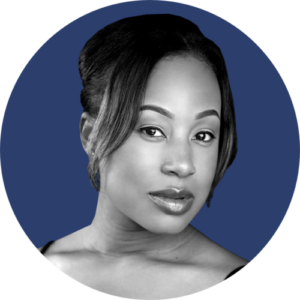
Chiquita Melvin
Voice of Rachel Anderson, Amanda Berry Smith, Leah Garrett, Emily Rodney, Louisa Jacobs

Conrad Haynes
Voice of Peter Randolph, William H. Grey, Freedman’s Bureau Report 1

Constance Swain
Voice of Harriet Jacobs, Sarah Douglas, Elizabeth Keckley, Jarena Lee

Gavin Wright
Voice of Reverend Doctor Boynton
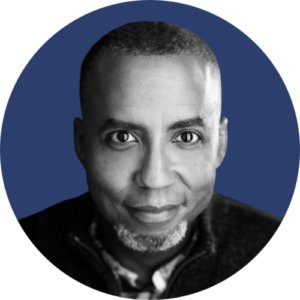
James J. Johnson
Voice of George Kye, Freedman’s Bureau Report 4
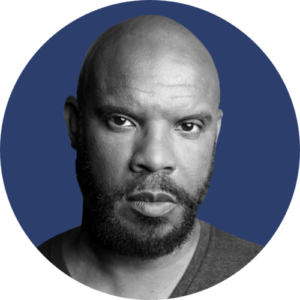
Jefferson A. Russell
Voice of Wash Wilson, William Moore, Bishop Daniel Payne, Freedman’s Bureau Report 2
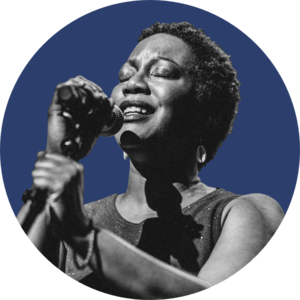
Richelle Claiborne
Voice of Patsy Moses, Emma Tidwell, Julia Foote, Anna J. Cooper
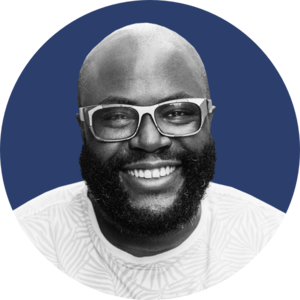
Ronald Young, Jr.
Voice of Harris, Freedman’s Bureau Report 3

William Barnett
Voice of James Southall, Henry McNeal Turner, Anonymous, The Louisianian, Rev. Robert Alexander
Episode Resources
The following resources were utilized in the research and creation of this episode:
- Accessible Archives – The Christian Recorder
- Albert Raboteau – Slave Religion: The “Invisible Institution” in the Antebellum South
- Amanda Berry Smith – The Story of the Lord’s Dealings with Mrs. Amanda Smith the Colored Evangelist; Containing an Account of Her Life Work of Faith, and Her Travels in America, England, Ireland, Scotland, India, and Africa, as an Independent Missionary
- Andre E. Johnson – The Forgotten Prophet : Bishop Henry McNeal Turner and the African American Prophetic Tradition
- Anna J. Cooper – A Voice From the South
- Anthea Butler – Women in the Church of God in Christ Making a Sanctified World
- Clarence E. Walker – A Rock in a Weary Land The African Methodist Episcopal Church During the Civil War and Reconstruction
- Claude F. Jacobs – Benevolent Societies of New Orleans Blacks during the Late Nineteenth and Early Twentieth Centuries
- Documenting the American South, University of North Carolina at Chapel Hill – The Church in the Southern Black Community
- Dorothy Sterling – We Are Your Sisters: Black Women in the Nineteenth Century
- Elizabeth Jemison – Christian Citizens: Reading the Bible in Black and White in the Postemancipation South
- Ella Forbes – African American Women During the Civil War
- Elsa Barkley Brown – Negotiating and Transforming the Public Sphere: African American Political Life in the Transition from Slavery to Freedom
- Emma Ray Boyd – Twice Sold, Twice Ransomed: Autobiography of Mr. and Mrs. L. P. Ray
- Evelyn Brooks Higginbotham – Righteous Discontent: The Women’s Movement in the Black Baptist Church: 1880-1920
- Harriet Jacobs – Incidents in the Life of a Slave Girl
- Henry Louis Gates, Jr. and Dyllan McGee – The Black Church: This Is Our Story, This Is Our Song
- Hilary Green – Educational Reconstruction: African American Schools in the Urban South, 1865-1890
- J.O. Andrew, R. Paine, G.F. Pierce – Pastoral Address of the Southern Methodist Bishops, August 17, 1865
- Jarena Lee – Religious Experience and Journal of Mrs. Jarena Lee
- Jean Lee Cole – Freedom’s Witness: The Civil War Correspondence of Henry McNeal Turner
- Judith Weisenfeld – African American Women and Christian Activism New York’s Black YWCA, 1905-1945
- Julia Foote – A Brand Plucked From the Fire
- Martha S. Jones – After Reconstruction, Black Women Found Opportunity for Revolt in Church
- Martha S. Jones – All Bound Up Together: The Woman Question in African American Public Culture, 1830-1900
- National Humanities Center – Religious Practice of Enslaved African Americans in the Southern United States: Selections from the WPA Interviews 1936-1938
- Nicole Myers Turner – Soul Liberty The Evolution of Black Religious Politics in Postemancipation Virginia
- Paul Harvey – Freedom’s Coming: Religious Culture and the Shaping of the South from the Civil War through the Civil Rights Era
- Reginald F. Hildebrand – The Times Were Strange and Stirring: Methodist Preachers and the Crisis of Emancipation
- Rev. Robert Alexander – Affidavit of an Alabama Black Teacher and Clergyman
- Sylviane A. Diouf – Servants of Allah African Muslims Enslaved in the Americas
- The Freedmen’s Bureau Online – Records of the Assistant Commissioner of the Bureau of Refugees for the District of Columbia
- Timothy L. Hall – Religion In America
- Tyrone McKinley Freeman – Madam C.J. Walker’s Gospel of Giving: Black Women’s Philanthropy during Jim Crow
- University of Arkansas Libraries – Proceedings of the Convention of Colored Citizens held in Little Rock, November 30-December 2, 1865
- Valley of the Shadow Archive – Emily Rodney’s Letters to the Freedmen’s Bureau



